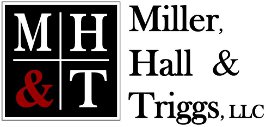Recent amendment to Open Meetings Act requires all elected and appointed members of public bodies to receive training
By Robert B. McCoy
A recent amendment to the Open Meetings Act, which becomes effective January 1, 2012, requires all elected or appointed members of a public body to receive mandatory training regarding the various requirements and responsibilities established by the Act. Although compliance with this mandatory training requirement should not create a heavy burden on local governments, we recommend that each local governmental entity take time to identify the persons required to undergo the training and take steps to ensure that those persons complete the training by their statutory deadline.
The Act clearly applies to members of city councils, village boards, park district boards, school boards, etc. However, persons not serving on a local governmental entity’s governing board might also be required to undergo training, depending on how the entity conducts its business. The Open Meetings Act applies to all “public bodies,” which is defined broadly to include subsidiary bodies, “including but not limited to committees and subcommittees which are supported in whole or in part by tax revenue, or which expend tax revenue.” Common examples of such subsidiary bodies are zoning boards and planning commissions. If a local governmental entity sets up any committee or subcommittee that is supported by any tax money, or has authority to spend tax revenue, that committee or subcommittee’s members, whether they are employees or community volunteers, its members are arguably required to undergo training.
Who are the members of a public body, or the members of a public body’s committee or subcommittee? The Act does not say, but the most natural reading of the Act is that anyone with voting rights and anyone who is counted to form a quorum is a member. Non-voting attendees are not required to undergo Open Meetings Act training. For example, a local governmental entity might have a clerk, treasurer and attorney, all of whom regularly attend meetings, but do not vote and do not count towards establishing a quorum. Unless and until the Act is clarified by the Illinois Attorney General or the courts, it appears that the clerk, treasurer and attorney in this example are not required to undergo training. Of course, they may find the training beneficial, and online training is free and available to any interested person. In contrast, an unpaid volunteer on a park district committee supported by tax dollars, even though she may not consider herself a public official, should complete the training.
For presently-serving members of a public body, the mandatory training is to be completed by January 1, 2013. Persons elected or appointed to a public body after January 1, 2012 are to complete the training within 90 days of taking their oath of office. (Members of a public body who do not take an oath of office are to complete the training within 90 days of assuming their public duties.)
The mandatory training is available online, at the website maintained by the Illinois Attorney General’s Public Access Counselor, located at: http://foia.ilattorneygeneral.net/electronic_foia_training.aspx. This website is already up and running because the Open Meetings Act has, since January 1, 2010, required all public bodies to designate at least one official or employee to undergo online training. There is no reason to believe that the format of this online training will change now that it has been expanded to cover all members, not just a single designee of a public body. The online course currently consists of 58 pages of information regarding compliance with the Open Meeting Act, interspersed with multiple choice questions. The training can be completed in about one hour.
Elected school board members are given the option to attend a school board association sponsored training session, instead of training online. There is no equivalent option for other elected officials; municipal officials cannot complete the training by attending any municipal association session.
Once a member of a public body completes the training, he or she is required to file a certificate of training with his or her public body. Likewise, every member of committee or subcommittee established by the public body should file a certificate that he or she completed the online training.
Currently, the mandatory training for all members of a public body is on the honor system. If the training is not completed, the member faces no penalties. Other violations of the Open Meeting Act still carry a stiff penalty, including criminal sanctions. Nevertheless, the Act has received much attention, and it is certainly possible that the Act will be amended yet again to include penalties for officials who fail to undergo training.
